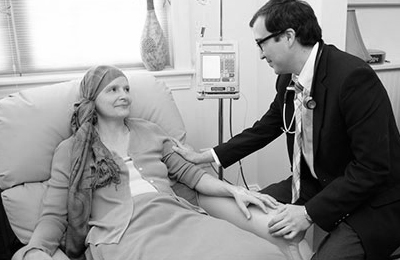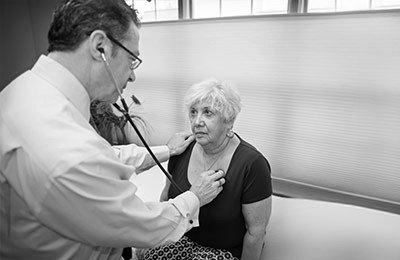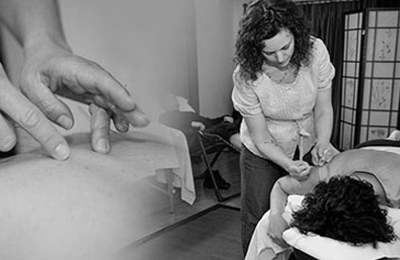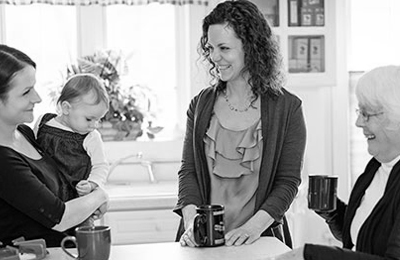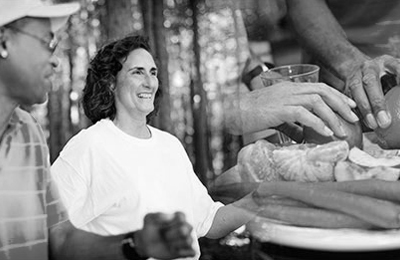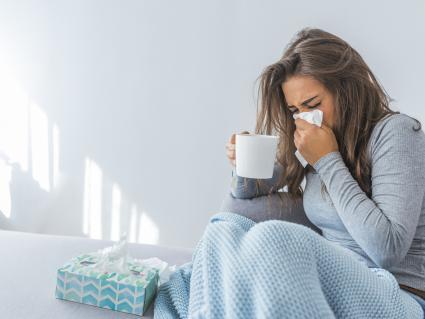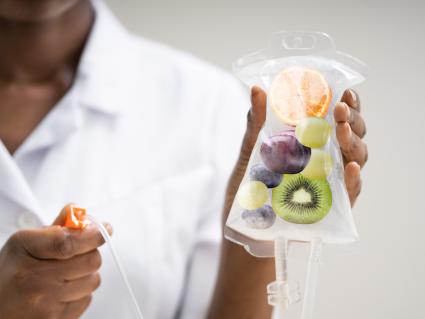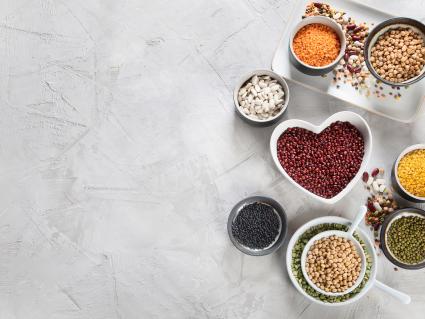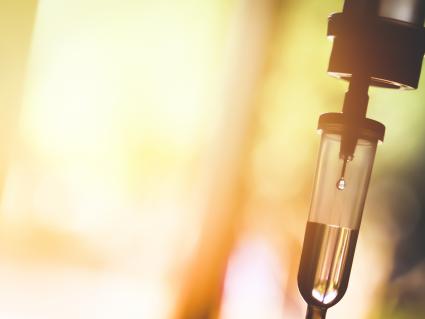Myth vs Fact: The Skinny on Cancer
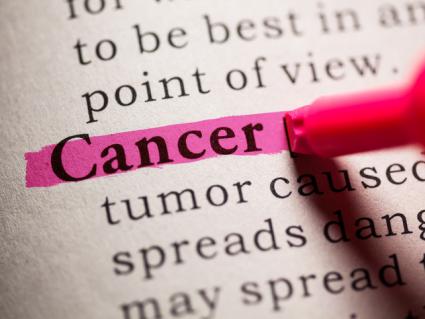
Ahhh…spring is just around the corner! This month we are taking a look at common myths in healthcare, to decipher what is accurate, and what is, well, just simply not true.
I will focus on a few cancer myths that I have heard in my now many (!) years of taking care of patients with cancer:
- “Cancer is mainly genetic, and if you get those ‘bad genes’, there’s not much you can do about it!” This is an all too common misperception, and contributes to the helplessness patients with cancer or those with strong family histories for cancer can feel. The truth is that less than 5% of all cancers have a genetic link, and more than half of cancer diagnoses can be prevented! Knowing this fact can be very empowering for people, as paying attention to lifestyle factors and exposures can make a real difference. Epigenetics is a term that describes the study of how nutritional and environmental influences can activate or deactivate certain genes, without changing the genetic code itself, and provides evidence that having a particular gene present does not mean cancer is inevitable. This is well described by the late Dr. Mitchell Gaynor in his book The Gene Therapy Plan: Taking Control of Your Genetic Destiny with Diet and Lifestyle (Viking Publishing, 2015). In it, he states that “The expression of our genes is deeply affected by everything we eat and drink, by the way we move and the habits and patterns that govern our days. We cannot change the genes we are born with, but we can prevent and reverse disease with foods, supplements, and lifestyle choices that turn good genes on and bad genes off.
- “Being obese really doesn’t increase a person’s risk for cancer.” While a low percentage of cancers are attributable primarily to a genetic mutation, a much higher percentage ARE directly related to obesity. Some evidence suggests that being overweight contributes to a more advanced tumor type at the time at diagnosis and can also decrease overall survival (Abrams DI and Weil AT, Integrative Oncology, Second Edition, Oxford University Press 2014, page 105). Excess weight is directly linked to an increased risk of death from cancer in those already diagnosed with cancer. Currently the typical Western diet (“Standard American Diet”, or SAD) promotes obesity and thereby contributes to the development of cancer. The SAD diet is rich in “energy dense” foods such as dietary fat and beverages high in simple sugars, and efforts to decrease consumption of these foods promote weight loss and control. Some evidence suggests that being overweight contributes to a more advanced tumor type at the time at diagnosis and can also decrease overall survival (Abrams DI and Weil AT, Integrative Oncology, Second Edition, Oxford University Press 2014, page 105). Excess weight is directly linked to an increased risk of death from cancer in those already diagnosed with cancer. In those without cancer, avoiding excess pounds, eating a healthful diet (“nutrient but not calorie dense”, such as the Anti-Inflammatory or Mediterranean diets), and exercising is a direct and controllable way to help prevent cancer.
- “People who have cancer should rest as much as possible and should do little physical activity.” It is true that patients with active cancer, particularly those on treatments such as chemotherapy, radiation, or immunotherapy, may experience fatigue from the cancer itself or from such therapies and do therefore require adequate rest. Such patients should, however, be encouraged to do regular physical activity on most days of the week as there are numerous health benefits from such exercise, including: prevention and management of other chronic medical conditions; controlling weight and countering obesity; improved general health and strength, countering fatigue and muscle deconditioning; possible improved cancer survival; amelioration of cancer treatment related side effects; possible improved mood and self-esteem; and improved quality of sleep. In general, few adverse events associated with exercise in patients with cancer have been reported, and there is generally a favorable risk/benefit ratio.
- “Eat whatever you want; the foods you eat really don’t matter once you already have cancer.” During my many years of hematology/oncology practice, I have heard numerous patients with advanced cancer who had seen other practitioners who told them they could eat whatever they wanted to, and that what they ate would make no difference in outcome; they were told to make sure they ate “enough calories.” Cancer patients are told to get all the calories they can, from, for example, butter, margarine, high-fat dairy products, mayonnaise, eggs, meat, hard and soft cheese, ice cream, and peanut butter. This “wrong-thinking” is discussed well by Dr. Keith Block in his book, Life Over Cancer (Bantam Dell, 2009, page 58). He points out the disconnect between the American Cancer Society’s cancer-prevention dietary advice and its cancer-fighting dietary advice, and states that it is hard to justify. He summarizes that “To a great extent, the foods recommended for cancer prevention are also the foods that seem to suppress cancer after it’s diagnosed…despite the overwhelming evidence for the benefits of a healthy diet when one is fighting cancer, this is not what mainstream medicine recommends.” In his experience, he has had numerous patients with advanced malignancies exceed expected survivals and quality of life by switching from nutrient-poor to nutrient-rich diets.
- “Herbs have no place during chemotherapy or radiation treatments for cancer, and should be completely avoided.” This too is a myth in cancer therapy. Although some herbs and supplements have clear data showing that they could be problematic during chemotherapy and/or radiation therapy in terms of potentially inhibiting the benefit of these treatments, many can be supportive and may actually: enhance activity of such therapies; reduce need for dose reductions of chemotherapies; reduce side effects from chemotherapy and radiation; and may actually improve survival. I highly recommend reading Dr. Keith Block’s meta-analysis of the use of antioxidants during treatments for metastatic cancer (Block KI et al., Impact of Antioxidant Supplementation on Chemotherapeutic Efficacy: A Systematic Review of the Evidence from Randomized Controlled Trials, Cancer Treatment Reviews [March 14, 2007]).
Well that is all for my input into this month’s newsletter…go out there and enjoy spring!!

